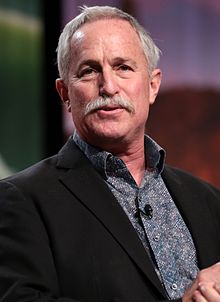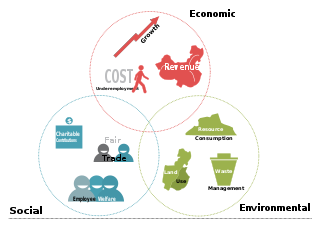
The triple bottom line is an accounting framework with three parts: social, environmental and economic. Some organizations have adopted the TBL framework to evaluate their performance in a broader perspective to create greater business value. Business writer John Elkington claims to have coined the phrase in 1994.

Corporate social responsibility (CSR) or corporate social impact is a form of international private business self-regulation which aims to contribute to societal goals of a philanthropic, activist, or charitable nature by engaging in, with, or supporting professional service volunteering through pro bono programs, community development, administering monetary grants to non-profit organizations for the public benefit, or to conduct ethically oriented business and investment practices. While once it was possible to describe CSR as an internal organizational policy or a corporate ethic strategy similar to what is now known today as Environmental, Social, Governance (ESG); that time has passed as various companies have pledged to go beyond that or have been mandated or incentivized by governments to have a better impact on the surrounding community. In addition, national and international standards, laws, and business models have been developed to facilitate and incentivize this phenomenon. Various organizations have used their authority to push it beyond individual or industry-wide initiatives. In contrast, it has been considered a form of corporate self-regulation for some time, over the last decade or so it has moved considerably from voluntary decisions at the level of individual organizations to mandatory schemes at regional, national, and international levels. Moreover, scholars and firms are using the term "creating shared value", an extension of corporate social responsibility, to explain ways of doing business in a socially responsible way while making profits.
A green economy is an economy that aims at reducing environmental risks and ecological scarcities, and that aims for sustainable development without degrading the environment. It is closely related with ecological economics, but has a more politically applied focus. The 2011 UNEP Green Economy Report argues "that to be green, an economy must not only be efficient, but also fair. Fairness implies recognizing global and country level equity dimensions, particularly in assuring a Just Transition to an economy that is low-carbon, resource efficient, and socially inclusive."

Paul Gerard Hawken is an American environmentalist, entrepreneur, author, economist, and activist.

Coimbatore Krishnarao Prahalad was an Indian-American entrepreneur and author.
A sustainable business, or a green business, is an enterprise which has a minimal negative impact or potentially a positive effect on the global or local environment, community, society, or economy—a business that attempts to meet the triple bottom line. They cluster under different groupings and the whole is sometimes referred to as "green capitalism". Often, sustainable businesses have progressive environmental and human rights policies. In general, a business is described as green if it matches the following four criteria:
- It incorporates principles of sustainability into each of its business decisions.
- It supplies environmentally friendly products or services that replace demand for nongreen products and/or services.
- It is greener than traditional competition.
- It has made an enduring commitment to environmental principles in its business operations.
Ray C. Anderson was founder and chairman of Interface Inc., one of the world's largest manufacturers of modular carpet for commercial and residential applications and a leading producer of commercial broadloom and commercial fabrics. He was known in environmental circles for his advanced and progressive stance on industrial ecology and sustainability.
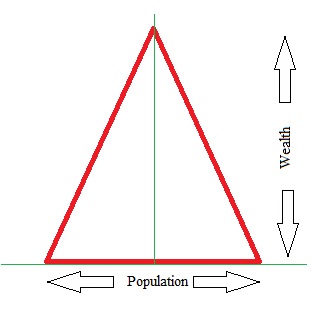
The bottom of the pyramid, bottom of the wealth pyramid, bottom of the income pyramid or the base of the pyramid is the largest, but poorest socio-economic group. In global terms, this is the 2.7 billion people who live on less than $2.50 a day.
Green brands are those brands that consumers associate with environmental conservation and sustainable business practices.
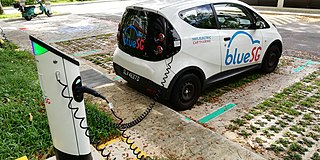
Clean technology, also called cleantech or climatetech, is any process, product, or service that reduces negative environmental impacts through significant energy efficiency improvements, the sustainable use of resources, or environmental protection activities. Clean technology includes a broad range of technology related to recycling, renewable energy, information technology, green transportation, electric motors, green chemistry, lighting, grey water, and more. Environmental finance is a method by which new clean technology projects can obtain financing through the generation of carbon credits. A project that is developed with concern for climate change mitigation is also known as a carbon project.
Green marketing is the marketing of products that are presumed to be environmentally safe. It incorporates a broad range of activities, including product modification, changes to the production process, sustainable packaging, as well as modifying advertising. Yet defining green marketing is not a simple task. Other similar terms used are environmental marketing and ecological marketing.
Gary Hirshberg is an American businessman. He is the former chief executive officer of Stonyfield Farm, an organic yogurt company, based in Londonderry, New Hampshire. He joined the company just after its founding in 1983 and stepped down in 2011, but continues to serve as Chairman. He frequently speaks on topics including sustainability, organic agriculture and the profitability of green business.

The Clean Tech Revolution: The Next Big Growth and Investment Opportunity is a 2007 book by Ron Pernick and Clint Wilder, who say that commercializing clean technologies is a profitable enterprise that is moving steadily into mainstream business. As the world economy faces challenges from energy price spikes, resource shortages, global environmental problems, and security threats, clean technologies are seen to be the next engine of economic growth.
Clint Wilder is a business journalist who has covered the high-tech and clean-tech industries since 1985.

John Elkington is an author, advisor and serial entrepreneur. He is an authority on corporate responsibility and sustainable development. He has written and co-authored 20 books, including the Green Consumer Guide, Cannibals with Forks: The Triple Bottom Line of 21st Century Business, The Power of Unreasonable People: How Social Entrepreneurs Create Markets That Change the World, and The Breakthrough Challenge: 10 Ways to Connect Tomorrow's Profits with Tomorrow's Bottom Line.
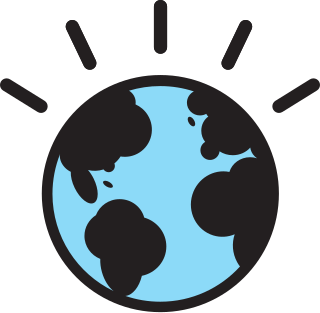
Smarter Planet is a corporate initiative of the information technology company IBM. The initiative was formed to encourage the ideas of business, government, and civil society leaders worldwide towards their path of achieving economic growth, near-term efficiency, sustainable development, and societal progress. Examples of smarter systems include smart grids, water management systems, solutions to traffic congestion problems, greener buildings, IBM's goal and strategy is to use the capacity of these technology and process management capabilities and, outside the realm of technology, to advocate for policy decisions that, according to the IBM's management, could "make the planet smarter.
A sustainability organization is (1) an organized group of people that aims to advance sustainability and/or (2) those actions of organizing something sustainably. Unlike many business organizations, sustainability organizations are not limited to implementing sustainability strategies which provide them with economic and cultural benefits attained through environmental responsibility. For sustainability organizations, sustainability can also be an end in itself without further justifications.
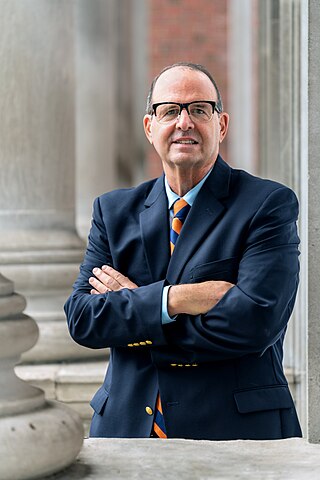
Jay S. Golden is an academic and researcher. Golden is the Pontarelli Professor of Environmental Sustainability & Finance at Syracuse University where he also directs the Dynamic Sustainability Lab. He is the author of the 2023 book, Dynamic Sustainability: Implications for Policy, Markets and National Security.
Sustainability marketing myopia is a term used in sustainability marketing referring to a distortion stemming from the overlooking of socio-environmental attributes of a sustainable product or service at the expenses of customer benefits and values. Sustainability marketing is oriented towards the whole community, its social goals and the protection of the environment. The idea of sustainability marketing myopia is rooted into conventional marketing myopia theory, as well as green marketing myopia.

Michel Gelobter is an American born social entrepreneur especially in the field of clean technology, who is also known for his research into and advocacy for environmental justice and social sector innovation.
